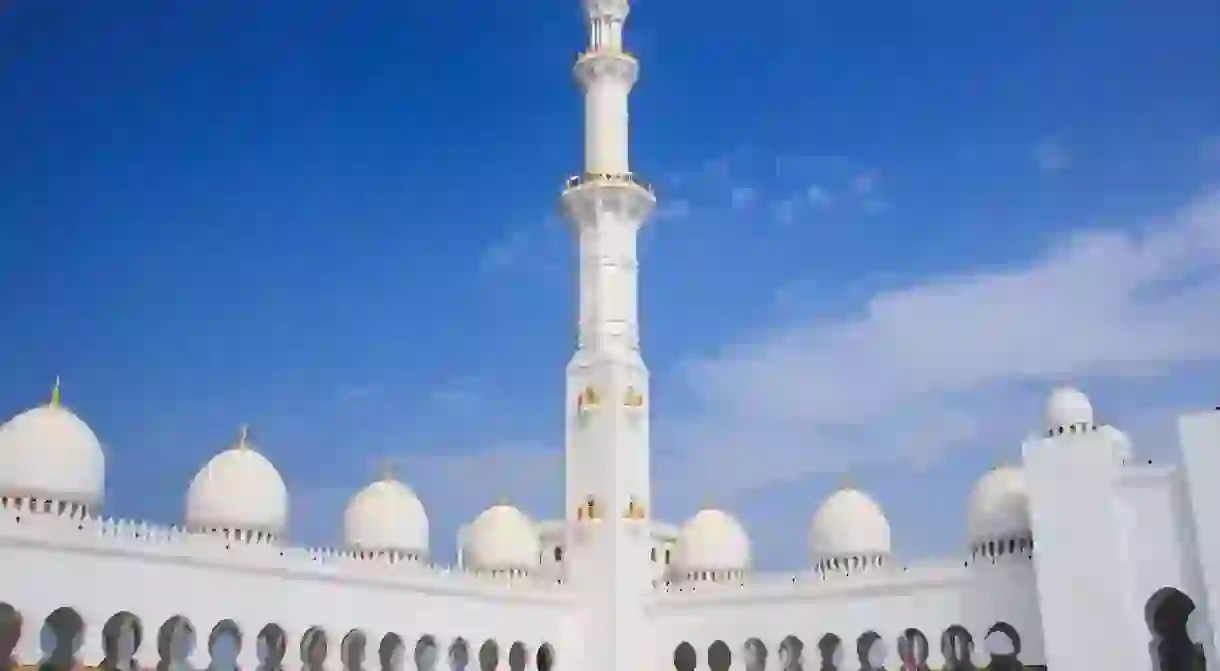10 Things You Need to Know About Eid Al-Fitr

One of the most important days in the Islamic calendar, Eid al-Fitr is a joyous three-day celebration that marks the end of Ramadan, a month-long fast observed by most of the world’s 1.6 billion Muslims. Let’s take a closer look at the traditions of Eid al-Fitr, a festival which above all is about family, community, generosity and gratitude.
It marks the end of Ramadan
Eid al-Fitr takes place on the first day of Shawwal, the Islamic month that comes directly after Ramadan. Throughout Ramadan, Muslims are obliged to refrain from eating, drinking and other sinful activities between sunrise and sunset, and must consider the occasion a time for reflection and worship. Also known as the Islamic Holy Month, Ramadan marks the moment when the sacred Quran was revealed to the prophet Muhammad.

It cannot begin until a new moon has been observed
The Islamic calendar is lunar which is why Eid al-Fitr falls on a different date of the Gregorian calendar each year. In accordance with tradition, the festivities cannot begin until a new moon has been observed, meaning that some parts of the world may celebrate Eid al-Fitr on a slightly different date to others. This year, Eid al-Fitr will be on June 25 in most regions.

A feast that lasts for days
After denying themselves of food during daylight hours for an entire month, many Muslim people are understandably delighted when the time comes to break their fasting ritual. Translating to: “The festival of breaking of the fast,” food plays an important role in Eid al-Fitr. The first breakfast of the event is fairly subdued, typically consisting of some sweets and dates. The real feast begins when families get together for lunch on the first day after morning prayers. Huge quantities of all sorts of local delicacies are devoured in joyous celebration, while further lavish banquets are repeated throughout the festival. The feasting becomes so frenzied that nutritionists have had to warn people in recent years about the dangers of overeating after a lengthy period of fasting.

Prayer plays an important role
Eid al-Fitr isn’t just about breaking the fast, it’s also a time for bonding as a community and devoting oneself to prayer. On the first day of the event Muslims visit their local mosque to pray under an open sky, kneeling down so that their heads touch the ground and loudly saying “Allah is great.” Several different prayer sessions are held over the course of the festival, most of which are compulsory and are used to ask for forgiveness, mercy, peace and blessings.

Everyone sports a fresh new outfit
On the first day of Eid al-Fitr it is customary for people to bath and put on a brand new outfit. This is done to honor Allah and is intended to symbolize the notion of spiritual renewal.
Gifts are handed out left, right and center
As with Christmas in the Christian world, Eid al-Fitr is a time when Muslims can shower their loved ones with gifts. Children typically get most of the attention, although presents are liberally handed out between friends and relatives as well.

Giving isn’t limited to the family
All Muslim people with the financial means are expected to pay Zakat al-Fitr, a special kind of alms which is intended to strengthen ties within the Islamic community and foster feelings of brotherhood and love. The system allows poorer Muslims to be included in lavish Eid al-Fitr banquets and encourages the wealthy to be more generous throughout the year.

The run-up to Eid al-Fitr
In the days leading up to Eid al-Fitr, Muslim women work together to clean the family home and decorate it with colorful lanterns and ornaments. When the big day comes, they put on their best clothes and apply henna (intricate temporary tattoos) to their hands before preparing a delicious meal to be enjoyed together as a family.

It’s a public celebration
Eid al-Fitr is widely celebrated in public to build a greater sense of community. Lively fairs are held in public spaces where merchants sell holiday themed food and gifts and revelers greet complete strangers with a cheerful “Eid mubarak” (blessed celebrations). The festivities continue well into the night when an abundance of fireworks light up the sky.

It’s not just for Muslims
In most parts of the world, non-Muslims are encouraged to visit the homes of their Muslim friends to join in the celebrations by indulging in excessive amounts of food and exchanging gifts.














